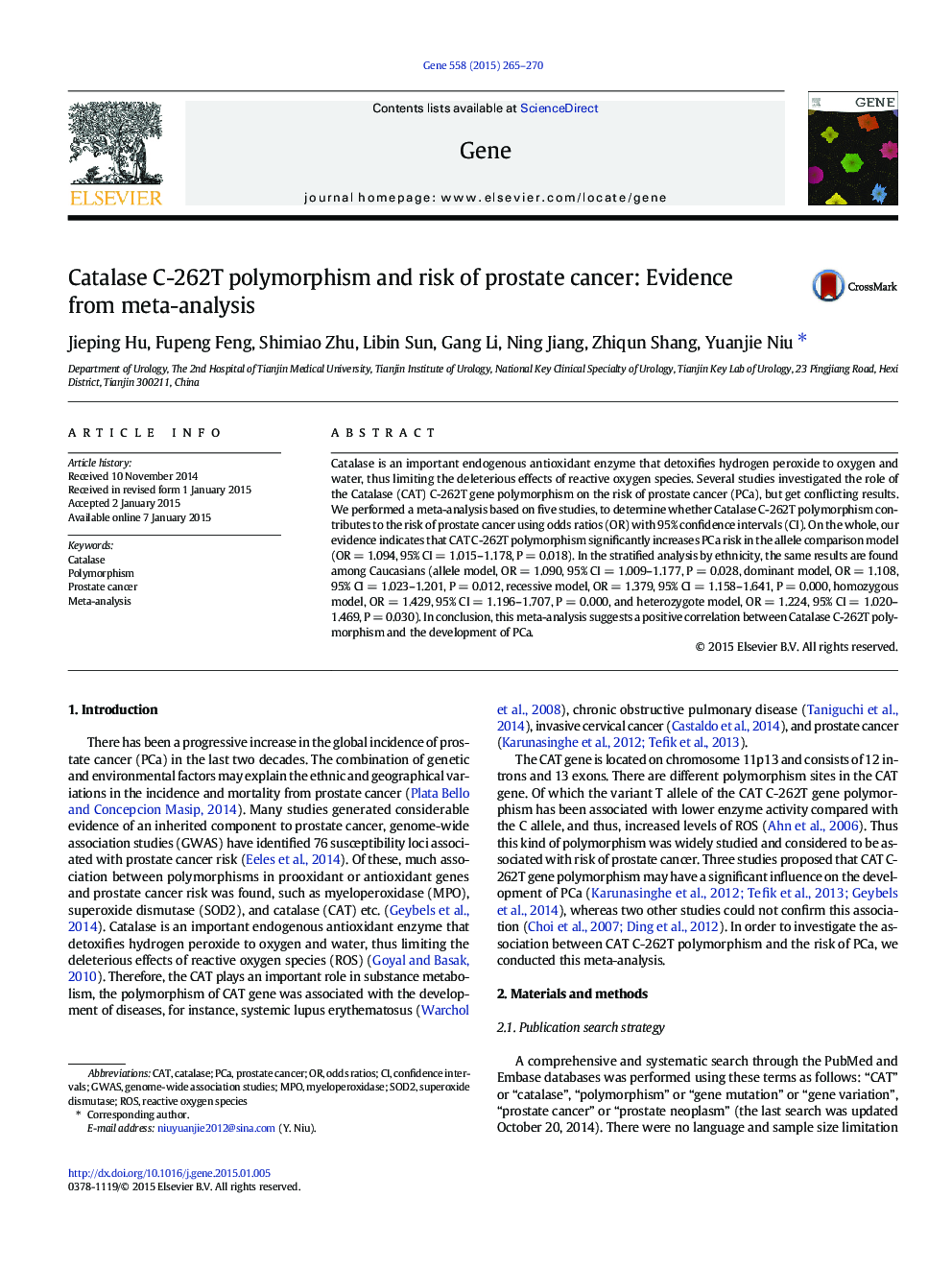| Article ID | Journal | Published Year | Pages | File Type |
|---|---|---|---|---|
| 2815903 | Gene | 2015 | 6 Pages |
•We conclude the correlation between Catalase C-262T polymorphism and PCa risk.•Catalase C-262T polymorphism contributed to the prostate cancer risk.•CAT gene polymorphism might provide a clue regarding the aggressiveness of PCa.
Catalase is an important endogenous antioxidant enzyme that detoxifies hydrogen peroxide to oxygen and water, thus limiting the deleterious effects of reactive oxygen species. Several studies investigated the role of the Catalase (CAT) C-262T gene polymorphism on the risk of prostate cancer (PCa), but get conflicting results. We performed a meta-analysis based on five studies, to determine whether Catalase C-262T polymorphism contributes to the risk of prostate cancer using odds ratios (OR) with 95% confidence intervals (CI). On the whole, our evidence indicates that CAT C-262T polymorphism significantly increases PCa risk in the allele comparison model (OR = 1.094, 95% CI = 1.015–1.178, P = 0.018). In the stratified analysis by ethnicity, the same results are found among Caucasians (allele model, OR = 1.090, 95% CI = 1.009–1.177, P = 0.028, dominant model, OR = 1.108, 95% CI = 1.023–1.201, P = 0.012, recessive model, OR = 1.379, 95% CI = 1.158–1.641, P = 0.000, homozygous model, OR = 1.429, 95% CI = 1.196–1.707, P = 0.000, and heterozygote model, OR = 1.224, 95% CI = 1.020–1.469, P = 0.030). In conclusion, this meta-analysis suggests a positive correlation between Catalase C-262T polymorphism and the development of PCa.
